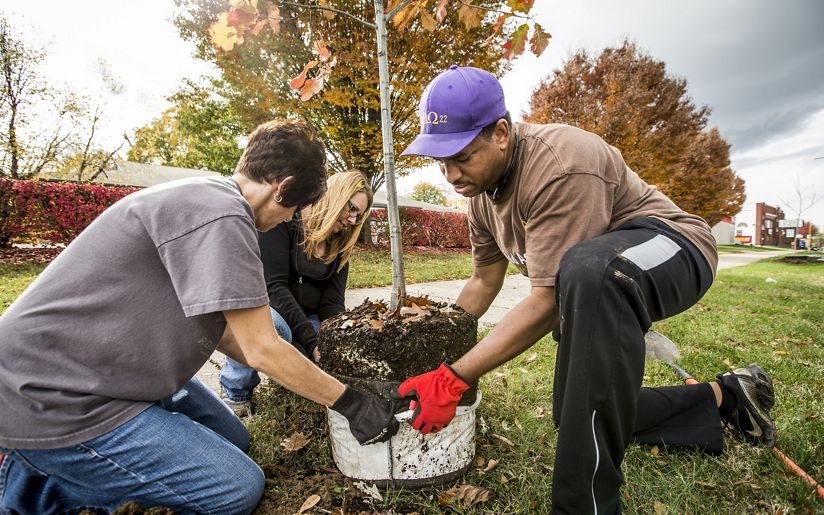- About
- Topics
- Picks
- Audio
- Story
- In-Depth
- Opinion
- News
- Donate
- Signup for our newsletterOur Editors' Best Picks.Send
Read, Debate: Engage.
| October 24, 2016 | |
|---|---|
| topic: | Innovation |
| tags: | #bicycle, #Buffalo Bicycles, #Kenya, #Tonny Omwansa |
| located: | Kenya |
| by: | Bob Koigi |
The scheme being trialed by the University of Nairobi also targets entrenched mindsets among Kenyans who associate bicycles and cycling with poverty in the wake of a burgeoning middle class that has invested in cars for luxury.
Dr Tonny Omwansa, the brains behind the project, insists that the time is ripe for Nairobi and other cities in Africa to go the bicycle sharing way since they are the most affected by the problems associated with public transport.
His light bulb moment came when he visited Israel’s ‘White City’ of Tel Aviv on a business trip last year. He has since then been working with innovators at the University of Nairobi’s (UoN) Computing for Development Laboratory (C4DLab) to model the idea to fit the Kenyan situation.
“For a very long time bicycles here and across Africa have been associated with low class and status. Yet they offer the most practical and cheapest way of managing the growing menace that is the traffic jam. We have to get our people to change their mindsets,” Dr. Omanga said.
The pilots have received a warm reception from students and Dr. Omwansa is optimistic that when the full roll-out happens next month the same reception will be replicated across the city.
The scheme intends to have bikes located near public transport stations allowing riders to use them for short trips and return them to the designated stations near their destinations.
To tame theft, the bicycles will be fitted with alarm systems, number plates, reflectors, colour and location sensing capabilities. Users will be expected to pay $10 each year as subscription fee tor the services.
Docking stations will be set up connecting Nairobi’s city center with Upper Hill area a zone nearing the city center where majority of foreign embassies and government ministries are located.
The CD4Lab has been working with Buffalo Bicycles in Chicago USA, a global NGO that advocates for innovation and offers technical support in championing growth of sustainable transport and urban development globally. The NGO donated the pilot bicycles with the lab now set to purchase 30 mountain bikes each at $100 to roll out the scheme fully. The United Nations Habitat has also supported the programme with a $10,000 grants.
Rapid urbanization across major cities in Africa, and especially East Africa hasn’t matched with the growth of infrastructure which still lags behind. A growing middle class has also meant that more people are buying cars putting further strain on the overstretched infrastructure. It is estimated that traffic snarl ups cost Nairobi on average $500,000 in productivity besides the growing environmental concerns that have been raised as toxic fumes continue to be emitted across the city. The city’s roads have been identified as the fourth most congested globally by the International Business Machines Corp.’s Commuter Pain survey in 2011. The situation will get worse, city planners insist, arguing that Nairobi which currently hosts 4 million people and still expanding while adding cars with limited infrastructure, will reduce the average driving speed by half from the current 40 km per hour by 2030.
Such reasons have seen both government and the private sector throw their weight behind the bicycle sharing scheme. Alfred Weke from the Urban planning office of the county government of Nairobi says with urban population growing at unmanageable levels, bicycles are the only alternative to halting a crisis that could grind cities to a halt.
“We have all these infrastructure projects we are talking about. But we need a multi-faceted approach if we are to have sustainable mode of transport in urban transport. Besides bicycles ultimately offers the most reliable, healthiest and cheapest option you can think of. That is why we have invested in supporting this project,” Mr. Weke said.
Globally, over 600 cities have embraced bike sharing schemes in their transport sectors with tremendous results according to the US Institute for Transportation and Development Policy. The largest such schemes, the ITDP says, are found in cities like Shanghai and Hangzhou in China, Washington DC in US, London in UK and Paris in France.
By copying the embed code below, you agree to adhere to our republishing guidelines.
